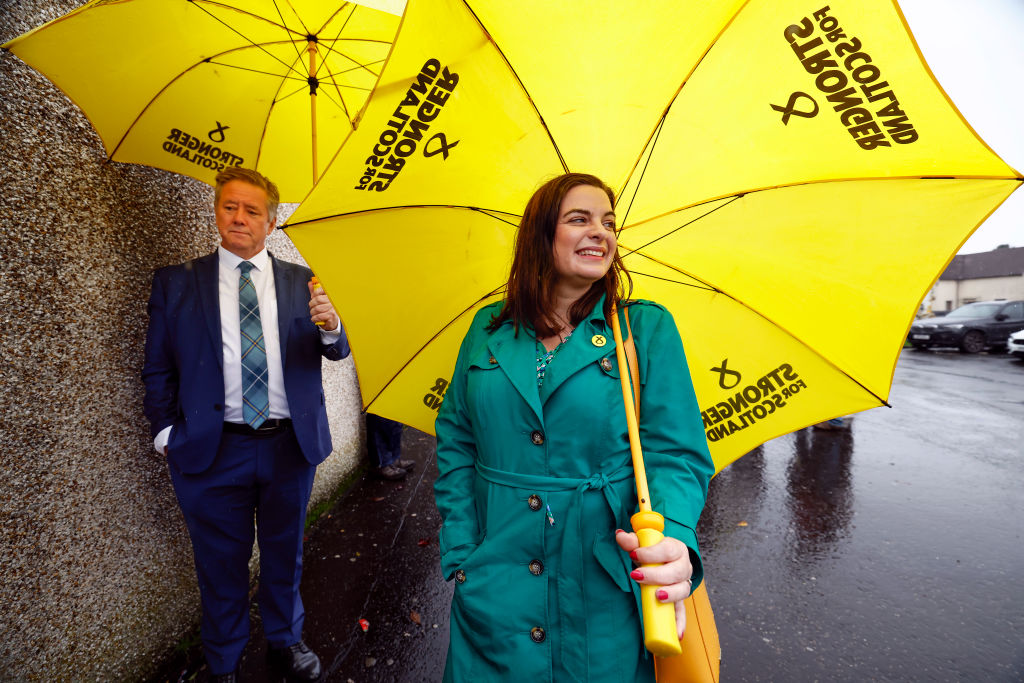The SNP has never been noted for its capacity for self-reflection. Each and every time it suffers defeat, it plays the card marked victimhood. Dark forces, rather than its own incompetence, are aways to blame when things don’t go to plan.
The SNP has reacted to defeat in the Rutherglen and Hamilton West by-election with predictable gracelessness.
Perhaps the perfect example of this inability to ask whether the party could have done things differently came in 2014 when the Yes campaign was heavily defeated in the independence referendum. Rather than wondering whether his threadbare plan for secession might have turned voters off, former SNP leader Alex Salmond pointed the finger at both the BBC and the Treasury. These institutions — with their inconvenient facts — had conspired to undermine democracy.
This inability to take responsibility continued under the leadership of Nicola Sturgeon. She repeatedly attacked the UK government for failing to allow a second referendum even as every poll showed the majority of Scots didn’t want one. It was easier for Sturgeon to blame big bad Westminster for thwarting her dreams of independence than consider why Scottish public opinion hadn’t shifted in favour of independence.
The SNP has reacted to defeat in the Rutherglen and Hamilton West by-election with predictable gracelessness. This time, the problem was those voters who backed Labour’s Michael Shanks over the nationalist Katy Loudon. Throughout his appearance on BBC Scotland’s early morning coverage of the by-election, SNP deputy leader Keith Brown was keen to undermine Labour’s victory with the repeated assertion that the party had benefited from the backing of people who had — gasp! — previously voted Tory. This was perfectly in keeping with the SNP’s current line that there is no difference between Labour and the Conservative party but it didn’t display any understanding of the nationalists’ current problems or a shred of respect for voters.
A press release issued shortly after Brown’s television appearance contained the complaint that ‘it’s Sir Keir Starmer’s pro-Brexit Labour party that benefitted from support from Tory voters’. The angry Braveheart contingent of the SNP’s support might lap this up but it’s not clear how it’s going to win hearts and minds.
There is an almost endless list of reasons that the SNP has lost support in Scotland. A police investigation into the party’s finances, unpopular legislation on gender recognition, fishing bans and deep divisions under the relatively new leadership of Humza Yousaf are all perfectly understandable reasons for voters to have decided the nationalists have had their day. But even if Brown is correct and Tory supporters voted tactically, so what? We are all entitled to vote however we wish for whatever reason.
More than that, it would be a bit rich for the deputy leader of the SNP — the party which has insisted the constitutional question must dominate Scotland’s politics — to cry foul if unionists decided to join forces at the ballot box.







Comments